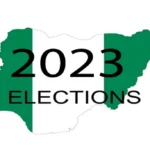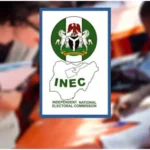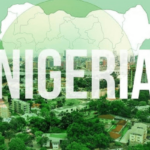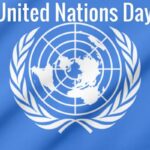Sixty-eight days to the presidential and National Assembly elections, multiple potential flashpoints for likely electoral violence have been identified, giving concerns to the country’s security and election stakeholders, Daily Trust reports.
The Independent National Electoral Commission (INEC) had fixed Saturday, February 25, 2023, for the presidential and National Assembly elections to choose President Muhammadu Buhari’s successor, 109 senators and 360 members of the House of Representatives.
The elections will hold in 176,846 polling units across the country with over 84m registered voters expected to participate in the exercise.
As the elections approach, the country has continued to witness election-related violence. A tally by this paper showed that 24 persons have been killed this year, with dozens of others injured in different clashes.
- Buhari condoles Bature Abdulaziz over son’s death
- Gombe’s debt profile now N120bn — Finance commissioner
Analysts have listed key issues fuelling the crisis to include: inciting rhetoric, hate speech and fake news (especially in social media); Muslim-Muslim ticket controversy of the APC; activities of divisive and intolerant clergy; ethnic and religious profiling; intra-party fighting and legal tussles in some states.
Daily Trust reports that from February 3, 2019, the country’s electoral body recorded 53 attacks on its facilities with the South East geopolitical zone topping the chart.
The Chairman of the Independent National Electoral Commission (INEC), Prof. Mahmoud Yakubu, addressing the issue said Imo State topped the list with 11 incidences, Osun seven, five cases in Enugu and Akwa Ibom, while Abia and Cross Rivers also have four incidences each. He said two incidences were recorded in Anambra and Taraba states and one incidence each in Bayelsa, Ondo, Lagos, Borno, Kaduna and Ogun states.
Since the return to civil rule in 1999, six general elections had been held. Reports showed that in 1999, 80 people were killed; in 2003, 100 lives were lost; in 2007, 300 persons lost their lives and the country had the worst of it in 2011 when 800 persons were killed. During the 2015 and 2019 general elections, 100 and 145 persons lost their lives respectively.
Aside from the electioneering-related violence, the insecurity ravaging some parts of the country has heightened the fears among voters, the electoral body, political parties, civil society groups and security agencies.
In 50 days, the country witnessed 52 violent clashes, according to the Inspector General of Police, Usman Baba, during a stakeholders’ meeting last month. If the trend continues, Baba said it could affect the country’s electoral processes.
Reports from states showed that despite the deadline of December 31, 2022, by the federal government to tackle the insecurity, the menace of banditry was still terrorising N/West, farmer/herder clashes in N/Central, B/Haram in N/East, IPOB in S/East and pockets of security breaches are being recorded in the S/West geopolitical zone.
In its latest report, the Tony Blair Institute has also raised concerns that the 2023 elections are under threat of serious disruption from violence by Boko Haram, IPOB and bandits. Thus, the institute called for concerted efforts by the government.
South East
Top on the list of potential flashpoints is the entire five states in the South East geopolitical zone, due to the activities of the Indigenous People of Biafra (IPOB).
IPOB is a separatist organisation in Nigeria, which claims that its main aim is to restore an independent state of Biafra and has been terrorising the five states in the S/East zone – Ebonyi, Enugu, Abia, Anambra and Imo.
The group had been accused of killing security operatives, politicians, traditional rulers and ordinary citizens. Its members were also fingered in the destruction of symbols of authority like police stations and INEC offices, among others.
The declaration of a 5-day sit-at-home by a faction of the group escalated the killings in the region. On Wednesday, via a video posted on YouTube, Simon Ekpa, the self-acclaimed disciple of IPOB leader, Nnamdi Kanu, said that the 2023 elections will not hold in the South-East region.
Daily Trust reports that there are no fewer than 11.49m registered voters in the S/East. Following the escalation of attacks, the region has recorded low turnout in permanent voter cards (PVCs) collection that was flagged off last week by INEC.
Lagos
Lagos, the Centre of Excellence, is another potential flash point following the quest by the supporters of the Presidential Candidate of the APC, Asiwaju Bola Ahmed Tinubu and those of his LP counterpart, Peter Obi to outdo each other.
Also, the slogan, “Let’s take away Lagos from the Yoruba” by some Igbos who believe they have the numbers and resources to turn the tables in Lagos is raising tension in the state. On the other hand, there are some Yoruba, who believe it is high time to whittle down the influence of the Igbos in their state of origin.
Flashpoints to look out for in Lagos, where Igbo are largely populated include Ladipo, Ikeja, Oshodi-Isolo, Okota, Festac, Amuwo-Odofin, and Itire, among others. While these areas have a large proportion of Yoruba-speaking people as well, the Igbo largely dominate.
Daily Trust reports that there are over 7m votes for grabs in Lagos State.
Kaduna, Katsina, Sokoto, Zamfara
Like the S/East, the N/West geopolitical zone has been on the spot following the activities of bandits. Four of the seven states in the zone namely, Kaduna, Katsina, Sokoto and Zamfara states are badly affected. The zone has the highest number of registered voters in the country with 22.67m.
Daily Trust reports that many villages in the four states have been sacked by terrorists, thus threatening the forthcoming polls.
In October, the federal government, through the Minister of the Interior, Rauf Aregbesola, gave the security agencies December 31 ultimatum to restore law and order in all parts of the country.
In Kaduna, residents and politicians in parts of Birnin Gwari and Giwa local government areas, two of the most hit LGAs in the state, said it is unlikely that elections would hold in many communities in the two local governments due to banditry.
Members of the jihadi group Jama’atu Ansaru Muslim Fi Bilad al-Sudan, popularly known as Ansaru, are said to have control over many villages there.
Aside from the issue of banditry, Kaduna has been prone to the election and communal clashes. Last month, there was a bloody clash at the venue of the campaign of the PDP presidential candidate, Atiku Abubakar.
In 2011 during the post-election riot, when 12 states were engulfed in crisis and hundreds of people were killed, Kaduna was the most affected state.
Daily Trust reports that aside from the challenge of banditry that had placed Zamfara State on the spot, the state has been contending with the menace of political thugs. In October, the clash between supporters of the PDP and APC led to the death of one person while 18 others were injured.
In Katsina State, Daily Trust reports that Batsari, Jibia, Faskari, Safana, Kankara, Danmusa, Sabuwa, Funtua and Dandume LGAs have been facing the challenges of banditry. Many electoral wards in the areas have been sacked.
The situation is likely going to affect election conduct.
Kano
Tension is brewing in Kano State between the supporters of the ruling APC and those of the NNPP, the leading opposition party in the state. The leadership of the NNPP has threatened not to sign the peace accord over the statement of the chairman of the APC, Abdullahi Abbas. It would be recalled that in 2019, the state witnessed electoral violence which led to the killing of some people.
Recently, the political terrain in the state has been heated up following violent clashes between supporters of the APC and those of the NNPP, with each side blaming the other for the development.
Analysts believe the situation is a major threat to the 2023 general elections if not immediately addressed.
Benue, Plateau, Taraba
Crises occasioned by communal clashes and farmers-herders crises have placed Benue, Plateau and Taraba states as potential flashpoints for the 2023 general elections.
In Benue State, Katsina-Ala, Ukum, Guma, Ado, Logo and parts of Makurdi LGAs are the places to watch. Other LGAs to watch in Benue, the Food Basket of the Nation are; Gwer West, Gboko, Gwer East, Vandekiya and Okpokwu LGAs.
In Taraba, many Boko Haram fighters and bandits who relocated from the North East and North West are said to be in the state. Before now, the state was known for farmer/herder clashes.
Also prone to communal clashes is Plateau State. Jos North, Jos South and Bassa LGAs are hotspots of violent clashes in the state.
Borno
Though the menace of Boko Haram seems to have been significantly tamed, the attack on the campaign team of the presidential candidate of the PDP, Atiku Abubakar has made the state to be among the flash points. The supporters of PDP and APC are set for a showdown.
Don, retired AIG identify 15 states to watch
Analysing the issue, an associate professor of Political Sociology, at the University of Abuja, Dr Abubakar Umar Kari, identified 15 states as potential flashpoints.
Kari listed the states to include; Zamfara, Sokoto, Katsina, Kaduna, Niger, Kano, Bauchi, Rivers, Delta and all the five states in the South East.
According to him, “The potential flashpoints are (a) Bandits-threatened states: Zamfara, Sokoto, Katsina, Kaduna and Niger. (b) Boko Haram fringes: Borno and Yobe. (c) IPOB strongholds: Abia, Anambra, Enugu, Imo and Ebonyi states. (d) Battleground states (Kano, Rivers, Bauchi, Delta) and e. Lagos (due to the large concentration of Igbos).
On his part, a retired Assistant Inspector General of Police, Ambrose Aisabor, listed Lagos, Osun, Ogun, Oyo, Ebonyi, Imo, Rivers, Delta, Borno, Benue, Kano, Zamfara and Kaduna as states to watch.
“The states to watch out for because of antecedents and the build-up to the elections are Lagos, Osun, Ogun, Oyo, Ebonyi, Imo, Rivers, Delta, Borno, Benue, Kano, Zamfara and Kaduna,” he said.
IPOB, Yoruba secessionists plot to stop polls – IGP
Reacting to the attacks at the weekend during an investigative hearing at the House of Representatives, the Inspector General of Police (IGP) Usman Baba said separatist groups in the country are working to disrupt the 2023 elections.
Represented by Dandaura Mustapha, deputy inspector-general in charge of operations, Baba said while IPOB is out not to allow polls to hold in the S/East, pro-Yoruba secessionists are equally bent on stopping the exercise in the South West.
“What we discovered is that — we all know in this country; it is a well-known fact that in the South-East geo-political zone, we have issues of secessionists, the IPOB and ESN — these groups are bent on stopping elections from taking place in the South-East.
“In the South-West, we equally have the pro-Yoruba secessionists that are equally bent on not allowing the election to take place in their areas, hence the attack on INEC in Osun and Ogun of recent.
“There are other ones that are sponsored by politicians and other stakeholders. There is also an issue of failed and desperate politicians who are bent on stopping INEC from conducting this election,” he said.
10 issues fuelling clashes
While the issue of banditry, Boko Haram, and IPOB are being tackled by the government, the growing hate speech, online disinformation, muscling of opposition by ruling parties in some states, thuggery and violence against women are triggers of clashes.
In his submission, Kari listed eight things as the bane of trouble before, during and after the polls.
They included; inciting rhetoric, hate speech and fake news (especially in social media); Muslim-Muslim ticket controversy; activities of divisive and intolerant clergy; ethnic and religious profiling; intra-party infighting and seemingly endless legal tussles in some states.
Others, according to him, are violent attacks on persons and public assets and hate-mongering by anarchic groups (IPOB, ESN in particular); excessive, sometimes misplaced, expectations by supporters, fans and kinsmen (and women) of some candidates and performance (or otherwise) of INEC toward delivering free, fair, transparent and acceptable polls.
Talking about issues triggering clashes, the retired police boss said lack of level playing ground was chief among the banes.
“There is this lack of level playing ground for all the political parties. The governor’s most times are very intolerant of opposition parties and do not want them to thrive in their states. Opposition parties are not allowed to use venues where many people could see them,” he said.
“Issues that can cause violence after elections are when people feel there were no free and fair elections and also when election results are alleged to be tampered with. There could be violence when election results did not meet their expectations,” he said.
Actions gov’t must take before polls
For hitch-free polls, both the university don and the retired police chief agreed that the government must assert its authority and recover several ungoverned territories, where bandits, Boko Haram and IPOB are in charge.
Kari, said the electoral body be given free hand to conduct the elections .
He added, “Government must be neutral and refrain from interference in the electoral process. Its officials and state apparatus should especially keep away.”
On his part, the retired AIG said the federal government has a responsibility to ensure hitch-free elections.
This article was produced as part of the Conflict and Election reporting project in partnership with the Centre for Democracy and Development (CDD).
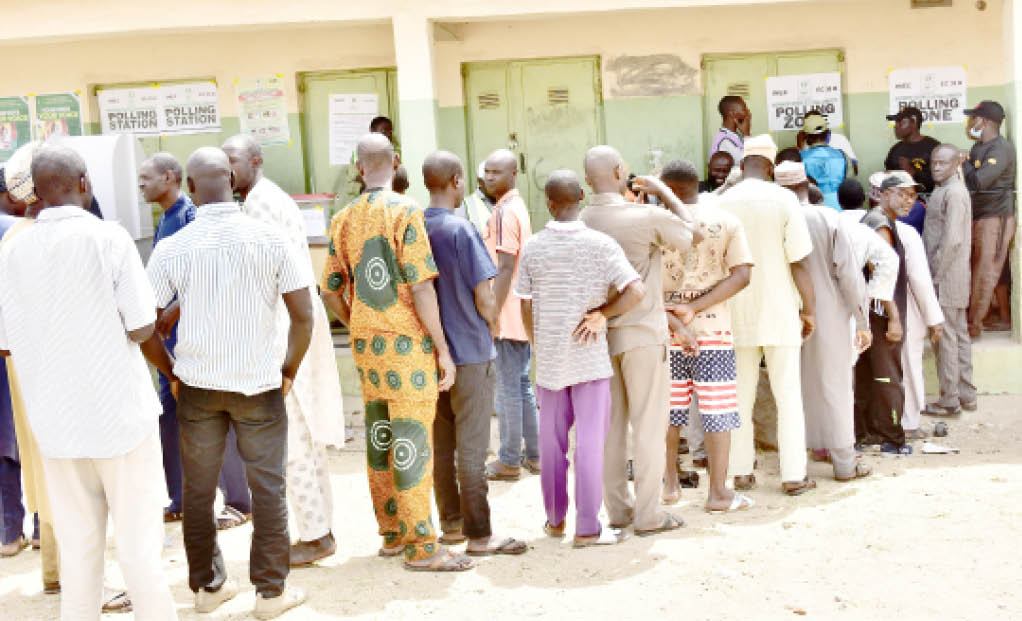
 Join Daily Trust WhatsApp Community For Quick Access To News and Happenings Around You.
Join Daily Trust WhatsApp Community For Quick Access To News and Happenings Around You.